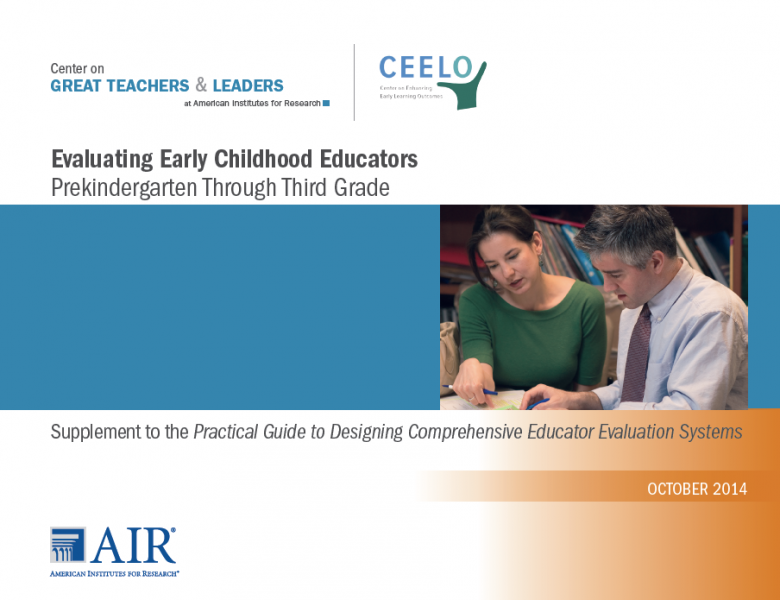Evaluating Early Childhood Educators: Prekindergarten Through Third Grade, a Supplement to the Practical Guide to Designing Comprehensive Educator Evaluation Systems
 Early childhood educators play a critical role in preparing students for success later in their school experience. The instructional techniques, emotional supports, and assessment approaches for early childhood settings are different from classroom settings in later grades. How can states and districts develop evaluation systems that are tuned to these differences to ensure that early childhood teachers receive accurate and fair evaluations and feedback?
Early childhood educators play a critical role in preparing students for success later in their school experience. The instructional techniques, emotional supports, and assessment approaches for early childhood settings are different from classroom settings in later grades. How can states and districts develop evaluation systems that are tuned to these differences to ensure that early childhood teachers receive accurate and fair evaluations and feedback?
Designed as an extension to the GTL Center’s resource, Practical Guide to Designing Comprehensive Teacher Evaluation Systems, this supplemental guide helps state and district teams to problem-solve and make design decisions to differentiate evaluation systems for early childhood teachers. The supplemental guide is organized into four sections:
-
Statutory and regulatory requirements that guide the development of educator evaluation systems and that detail inclusive and exclusive criteria used to determine which early childhood educators are subject to evaluation per the regulations and policy decisions.
-
Suitability and need for differentiation within measures of instructional/teacher practice and student growth based upon specific national/state professional association standards and relevant student growth and outcome information.
-
Professional learning for evaluators designed to guide and assist state and local teams in the recognition, evaluation, and support of best practices for evaluators of early childhood educators.
- Professional learning for teachers designed to assist early education teachers to enhance and move toward best practices.
Each section includes state-level examples and a series of questions you can use to facilitate an evaluation design process that better accounts for the early childhood classroom context.

